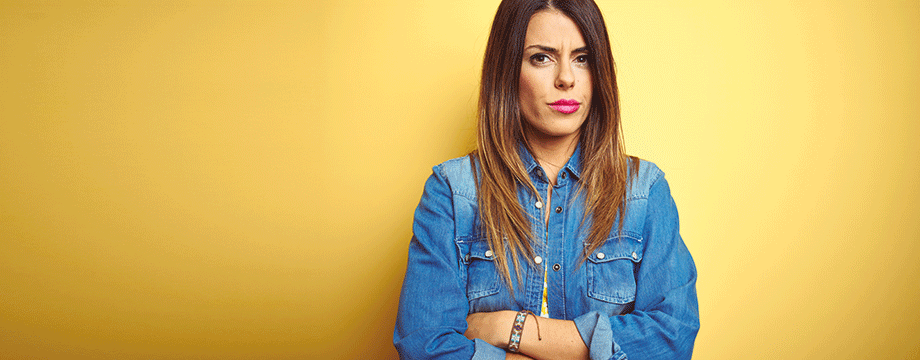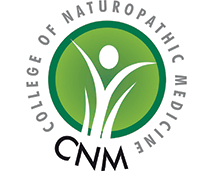Period drama

Our experts tackle your menstrual health issues
PMS
Q Every month I go through a real up and down in mood and I just can’t shake it. It’s worse before my period and sometimes I feel so angry I could throw things! Please help!
Pamela Spence answers: “What you’re describing sounds like classic pre-menstrual tension or PMT/PMS. This occurs when the female reproductive hormones are out of balance and can cause a range of symptoms including mood swings, breast tenderness, bloating, lethargy, mood swings and acne. The key to recognising PMT/PMS is whether it is cyclical – happens at the same point in your menstrual cycle each month. There are several over-the-counter things you can try. For women with PMT/PMS that is particularly linked to breast tenderness, oil of evening primrose has long been prized as a great solution. You can easily buy this in your local health food shop. Another option you could try would be Vitex agnus castus (also known as Agnus castus). This usually comes in tincture form and the best way to take it is 10–20 drops in the morning. Other things you can do to help would be to tidy up your diet when you get symptoms (which I understand may not be an easy ask!) but reaching for chocolate, sugar or caffeine could exacerbate the situation. Interestingly, if it is definitely chocolate you are craving and nothing else will do, try a magnesium supplement for a few weeks as this can be a sign of magnesium deficiency that could be easily remedied.”
Pamela Spence is a medical herbalist.
Visit pamelaspence.co.uk
Menopausal mood swings
Q I’m going through the menopause and I’m having terrible mood swings. What do you suggest?
Dr Marilyn Glenville answers: “Not just reserved for periods, mood swings are a side effect of the menopause too! Hormonal imbalances (low oestrogen, which influences the production of serotonin, the ‘happy hormone’) as well as sleep deprivation and sweats can strongly affect mood levels during the menopause. You are most likely to feel anxious, sad, irritated and melancholic. The good news is that simple lifestyle changes can make a huge difference. Certain nutrients can be very helpful in reducing stress levels. Go for the B vitamins, especially B5 for stress relief, as it supports adrenal function. The more stressed we are the more depressed we can become so it is important to tackle our mental state not just from the brain but also our adrenal glands. Magnesium (also known as nature’s tranquiliser) is crucial for relaxation and sleep, chromium for blood sugar balance, L-theanine for reducing anxiety and finally Siberian Ginseng, which acts as a tonic to the adrenal glands.”
Dr Marilyn Glenville is a leading nutritionist, women’s health expert and author of Natural Solutions to Menopause.
Visit www.marilynglenville.com
Painful periods
Q I regularly miss work because of painful periods. Is there anything I can change in my diet that could help?
Rosie Weston answers: “One thing that I say to all my clients is that you needn’t suffer with painful periods. Much can be done with diet and lifestyle to support your menstrual cycle:
- Increase fibre with five portions of veg per day including three servings of cruciferous veg (broccoli, cauliflower, kale, sprouts, radishes). Fibre and water help remove toxins and excess hormones from the body, supporting hormonal balance.
- Increase water to two litres a day (dependent on activity levels and time of year).
- Include a portion of protein with each meal such as a fist-sized piece of organic, grass-fed meat or beans, lentils and chickpeas. Protein is vital for supporting balanced blood sugar levels and contains amino acids which are vital for liver detoxification.
- Fermented foods: Daily consumption of these supports the gut microbiome which keeps everything moving. Examples include sauerkraut, kimchi, kefir or kombucha.
- Include anti-inflammatory foods such as turmeric, oily fish, ginger, extra virgin olive oil, nuts and seeds; these target inflammation in the body and help manage pain.
- Decrease inflammatory foods as they can make pain worse. Sources include non-organic/non-grass-fed meat, processed dairy, highly processed sugary or trans fat foods, caffeine and alcohol.
- Remove xeno-oestrogen sources such as clingfilm, plastic food containers and bottles, insecticides/pesticides, parabens in personal care products as all interfere with hormone balance.

Lastly, seek the services of a Nutritional Therapist for an individualised approach.”
Rosie Weston is a CNM Nutritional Therapy graduate (College of Naturopathic Medicine). CNM has a superb 22-year track record training successful natural therapy professionals, online and in class. Surveys show that over 80 per cent of graduates are practising. Colleges across the UK and Ireland.
For more information visit naturopathy-uk.com or call 01342 410 505.
Hormonal acne
Q I always seem to get acne around the time of my period. What can I do to reduce the problem?
Natasha Richardson answers: “It’s not uncommon for people with periods to experience a break-out before their period is due. This happens because there is a relatively high androgen and progesterone level during this time, which both increase sebum production leading to more easily clogged and irritated pores. While this change in hormones is perfectly normal, only some are affected by acne. As a herbalist I’d recommend considering a few things.
”The first is liver function. If the liver is struggling to excrete hormones these will circulate in the body for longer, creating a relatively high level of them. A traditional herb for liver support in relation to acne is burdock root (Arctium lappa rad.) which is most easily taken as a tincture on the tongue. Stress can exacerbate acne problems when it disturbs insulin levels and creates too much androgen as a result, such as in PCOS. Adaptogens like ashwagandha (Withania somnifera) are excellent at reducing stress in this way. Lastly, you may be extra-sensitive to acne-causing hormones even though your measurable levels are average. Combating this is much harder but it’s good to support the digestion so that absorption of nutrients and hormones are being well managed by the gut. I’d recommend taking probiotics and, funnily enough, burdock! It is a prebiotic which supports and feeds probiotics.”
Natasha Richardson is a medical herbalist and author of Your Period Handbook. She is the founder of Forage Botanicals, a company offering natural solutions for menstrual wellbeing.
Visit www.foragebotanicals.co.uk
Heavy periods
Q I suffer with heavy periods. Is there anything I can do to tackle the problem naturally?
Suzie Sawyer answers: “Heavy periods are suffered by women at different life stages and can become more problematic as ladies head for menopause. However, at whatever life stage, it’s important to check for any underlying conditions that may be causing the problem, although often no specific reason is found.
”Natural solutions can often help manage symptoms. For example, it’s important to check for iron-deficient anaemia via a blood test; heavy bleeding causes anaemia but it’s also a sign of anaemia. Vitamin B6 is needed to produce beneficial prostaglandins which have hormone-like functions and help reduce flow. Zinc is essential for the healthy functioning of the reproductive system generally, and for hormone balance. Plus, vitamin C helps strengthen blood capillaries, reducing heavy bleeding. Government surveys show women are failing to get vital nutrients daily including zinc and B vitamins, so women should consider bridging any dietary gaps with a multivitamin and mineral supplement. Plus, they should look to reduce their alcohol and caffeine intake, which may exacerbate the problem.”
Suzie Sawyer is a Clinical Nutritionist for Alive.
Visit www.feelaliveuk.com
Read previous Your Health articles here...
Read articles from our latest issue here...